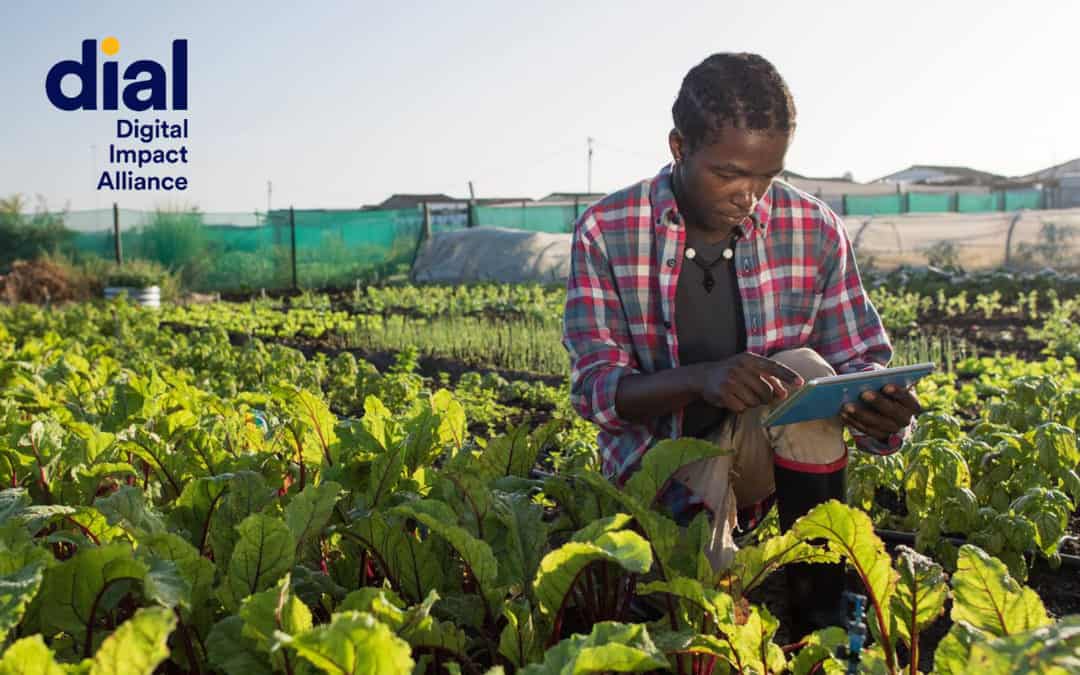[17 September 2018 – Cali, Colombia] How can mobile network data help build stronger, more resilient food systems worldwide?
This is the overarching question the CGIAR Platform for Big Data in Agriculture and the Digital Impact Alliance (DIAL) are striving to answer through a newly-formed partnership.
The two organizations have committed to bring together CGIAR’s food security research capabilities and DIAL’s technical leadership and experience as a liaison with the mobile sector. Together they aim to use mobile network data to create new cross-sector collaborations, engage the mobile sector to explore and support digital agricultural projects and initiatives, and to foster innovation designed to effectively integrate mobile data into food security research.
“Each of us generates loads of data every day in the course of our social and economic lives, and this partnership offers us an unprecedented opportunity to leverage this for food systems research,” said Brian King, coordinator of the CGIAR Platform for Big Data in Agriculture.
“Use of this data—anonymized—will unlock the ability to observe and understand whole value chains and food systems in action, and engage with a speed and scale that the world needs,” King said.
One of the project’s goals is to develop alliances that bring together mobile network operators and different stakeholders within specific food systems to create custom-tailored solutions for those food systems.
The program partners will also develop strategies designed to engage the mobile sector such that it plays a role in informing and shaping agricultural development strategies within the mobile industry. Potentially, this could include establishing challenges or prizes designed to tackle food security issues that employ mobile data in assessing or creating targeted interventions.
“Mobile network data can be useful to food systems research,” said Senior Director of DIAL’s Data for Development initiative, Syed Raza.
“DIAL stands ready to advise our CGIAR colleagues on how best to work with Mobile Network Operators to advance the use of data to support and improve agricultural interventions.”
Another focus will emphasize using mobile network metadata within food systems research. Traditional approaches to understanding food systems depend on surveys, which are costly and can only ever be a spot measurement at a single moment in time. Yet, very strong proxy measurements have been established for factors of vital importance to food security through observing patterns in mobile network metadata. It becomes possible to reveal and understand whole food systems at work in many of their facets: poverty, gender, the movement of goods and services, or changes in wealth distribution.
***
The Digital Impact Alliance (DIAL) aims to realize a more inclusive digital society in emerging markets, in which all women, men and children benefit from life-enhancing digital services. A partnership among USAID, the Bill and Melinda Gates Foundation, the Swedish Government and the United Nations Foundation, DIAL’s efforts help accelerate the collective efforts of government, industry and development organizations to realize this vision. http://www.digitalimpactalliance.org
CGIAR Platform for Big Data in Agriculture aims to harness the capabilities of big data to accelerate and enhance the impact of international agricultural research. The six-year initiative will provide global leadership in organizing open data, convening partners to develop innovative solutions, and demonstrating the power of big data analytics through inspiring projects that focus on improving agriculture in developing countries, and informing policymakers. http://bigdata.cgiar.org
CGIAR is a global agriculture research partnership for a food secure future. Its research is carried out by 15 centers in close collaboration with hundreds of partner organizations. http://www.cgiar.org
For more information, please contact Marianne McDade, Communications Coordinator,
CGIAR Platform for Big Data in Agriculture, m.mcdade@cgiar.org




